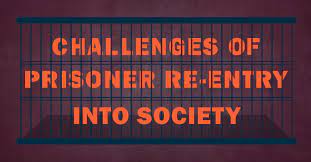Reentry and the American Dream: People Returning to the Community have the Same Dream but Lack the Same Access

Image Courtesy of Simmons University
By Lauren McGinn
On Thursday, February 24 at 12:30 pm, the Sociology club hosted an event exploring the challenges faced by people reentering American society post-incarceration. Dr. Esther Matthews, a highly experienced professional, spoke on this topic, and brought to light topics that Catholic University’s student body might have not discussed.
The event kicked off with a brief introduction, where the audience learned basic statistics about the American prison system, as well as statistics from Mathew’s studies on the public view of inmates post-incarceration. For example, these statistics state that “2.3 million people in prison, 10 million people arrested a year, 67 percent of people return.”
Mathews invoked the audience to try to answer this essential question: “How can we reduce this?”
She said that the answer to this is giving reentering citizens an opportunity to have success. She stated that individuals need to “get [their] dreams back,” in order to be productive members of society.
Mathews also spoke about her personal experience with re-entry. “It’s very hard to separate yourselves regardless of the changes you’ve made,” Matthews said. ”I wanted a life with things in it.”
She spoke specifically about the re-entry housing debacle, sharing with the audience about how, even though she has a Ph.D., she must still advocate for herself to have an opportunity to explain her incarceration when buying a house. Mathews said that she has to check a box that says she’s been incarcerated; sometimes it is an automatic rejection, but sometimes she gets a chance to explain.
However, she is still a tremendously successful person and uses this experience to show that people are so much more than a box, and how society does not always give people who are reentering a chance at the American dream.
Mathews will continue doing research and writing on reentry programs for inmates. She is working to start a dialogue, to prove that just because you go to prison, this does not automatically mean your dreams go away.
Her presentation was challenging and at points hard to listen to because the data is gut-wrenching. It proved that most of the American public believes that those who have been incarcerated deserve a normal life but don’t deserve the full American dream. Mathews also told the audience about her current projects that members of the sociology community are eagerly awaiting. These include, “Investigating the difference between reentry populations,” and, “Investigating how stacked challenges create additional barriers that uniquely affect reentry,” with a specific focus on “substance use, and mental health challenges.”
At the end of the presentation, there was a question-and-answer session where the audience asked some very interesting questions, and Matthews responded with some very stirring answers.
A question was asked, “ What can we do if we’re not sociologists or lawyers in a position to research and change policy?”, to which Matthews answered “Conversation.”
She pointed out that by simply talking about the challenges of re-entering people, you are making change. Mathews said that in conversations she humanizes formerly-incarcerated persons, and encourages students to “Ask [others], challenge them a little bit. Why do you think that most people who are incarcerated are bad”.
Another good way to challenge others is by saying, “These are people that have really been let down by society, and then we just throw them out.” She says that one of the easiest ways we can do this is to stop using the word inmate and start using the word “people”; she explained, “Language really does matter.”





